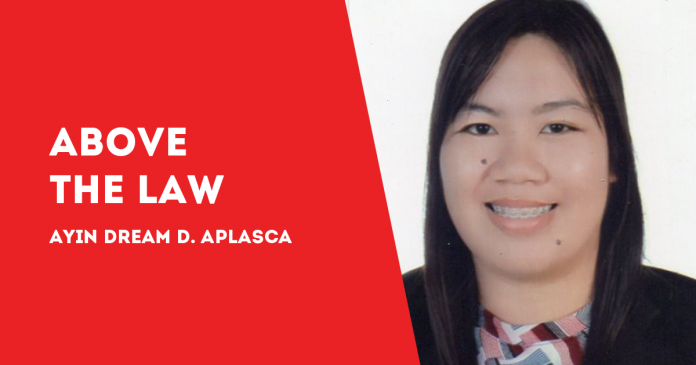
IT HAS been days since the news broke out about the murder of a businesswoman here in Iloilo. The latest news I read is that her helper may be sued for obstruction of justice.
In Facebook posts, some netizens were wondering why the authorities were planning to file a lawsuit against the helper when in fact the latter has been cooperative and helpful in solving the mystery behind the motive of the suspects and the arrest of them.
Accordingly, it was reported that it was impossible for the helper not to hear whatever noise or sound inside the house when the crime was committed. She was sleeping when the killing happened. The authorities believed she may have known more than what she has so far disclosed to investigators.
Obstruction of justice is punishable under Presidential Decree No. 1829 entitled “Penalizing the Obstruction of Apprehension and Prosecution of Criminal Offenders.” The purpose of the decree is to encourage the public not to frustrate the apprehension and prosecution of criminal offenders.
Under Sec. 1 of the decree, the penalty of prision correccional in its maximum period, or a fine ranging from P1,000 to P6,000, or both, shall be imposed “upon any person who knowingly or willfully obstructs, impedes, frustrates or delays the apprehension of suspects and the investigation and prosecution of criminal cases.”
The decree defines obstruction of justice as when a person prevents witnesses from testifying, alters evidence, harbors suspects, uses an alias to evade justice, delays criminal proceedings, submits false documents in such proceedings, solicits benefits or giving threats to keep a witness from testifying, and gives false information to mislead criminal prosecution.
In the present case, Section 1 (c) and (i) could be applied in the situation. It could be “harboring or concealing, or facilitating the escape of, any person he knows, or has reasonable ground to believe or suspect, has committed any offense under existing penal laws in order to prevent his arrest prosecution and conviction.”
It could also be “giving of false or fabricated information to mislead or prevent the law enforcement agencies from apprehending the offender or from protecting the life or property of the victim; or fabricating information from the data gathered in confidence by investigating authorities for purposes of background information and not for publication and publishing or disseminating the same to mislead the investigator or to the court.”
If any of the acts mentioned under the decree is penalized by any other law with a higher penalty, the higher penalty shall be imposed.
Section 2 of the decree provides that if any of the acts is committed by a public official or employee, in addition to the penalties provided thereunder, he will suffer perpetual disqualification from holding public office.
However, authorities should not forget the Bill of Rights, particularly Article III, Sec. 12 which states that “any person under investigation for the commission of an offense shall have the right to be informed of his right to remain silent and to have competent and independent counsel preferably of his own choice.”
Nevertheless, ensuring accountability and resolving the case must be the foremost priority without abuse of authority./PN





